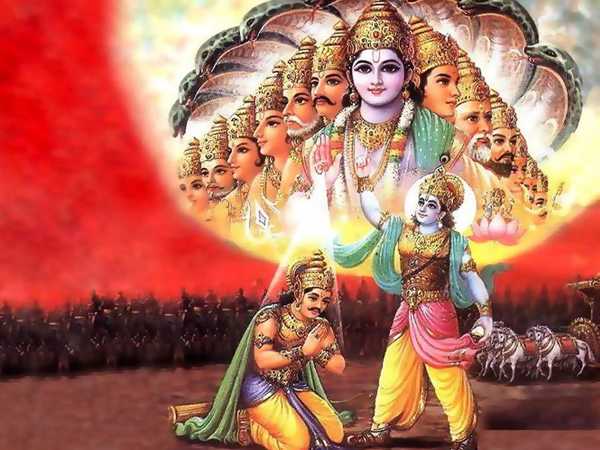Chapter 45

“Brahmana said, ‘The wheel of life moves on. It has the understanding forits strength; the mind for the pole (on which it rests); the group ofsenses for its bonds, the (five) great elements for its nave, and homefor its circumference.[132] It is overwhelmed by decrepitude and grief,and it has diseases and calamities for its progeny. That wheel relates intime and place. It has toil and exercise for its noise. Day and Night arethe rotations of that wheel. It is encircled by heat and cold. Pleasureand pain fire its joints, and hunger and thirst are the nails fixed intoit. Sun-shine and shade are the ruts (it causes). It is capable of beingagitated during even such a short space of time as is taken up by theopening and the closing of the eyelid. It is enveloped in the terriblewaters of delusion. It is ever revolving and void of consciousness. It ismeasured by months and half-months. It is not uniform (beingever-changing), and moves through all the worlds. Penances and vows areits mud. Passion’s force is its mover. It is illuminated by the greategoism, and is sustained by the qualities. Vexations (caused by thenon-acquisition of what is desired) are the fastenings that bind itaround. It revolves in the midst of grief and destruction. It is enduedwith actions and the instruments of action. It is large and is extendedby attachments. It is rendered unsteady by cupidity and desire. It isproduced by variegated Ignorance. It is attended upon by fear anddelusion, and is the cause of the delusion of all beings. It movestowards joy and pleasure, and has desire and wrath for its possession. Itis made up of entities beginning with Mahat and ending with the grosselements. It is characterised by production and destruction going onceaselessly. Its speed is like that of the mind, and it has the mind forits boundary.[133] This wheel of life that is associated with pairs ofopposites and devoid of consciousness, the universe with the veryimmortals should cast away, abridge, and check. That man who alwaysunderstands accurately the motion and stoppage of this wheel of life, isnever seen to be deluded, among all creatures. Freed from allimpressions, divested of all pairs of opposites, released from all sins,he attains to the highest goal. The householder, the Brahmacharin, theforest recluse and the mendicant,–these four modes of life have all beensaid to have the householder’s mode for their foundation. Whatever systemof rules is prescribed in this world, their observance is beneficial.Such observance has always been highly spoken of. He who has been firstcleansed by ceremonies, who has duly observed vows, who belongs inrespect of birth to a race possessed of high qualifications, and whounderstands the Vedas, should return (from his preceptor’s house).[134]Always devoted to his wedded spouse, conducting himself after the mannerof the good, with his senses under subjugation, and full of faith, oneshould in this world perform the five sacrifices. He who eats whatremains after feeding deities and guests, who is devoted to theobservance of Vedic rites, who duly performs according to his meanssacrifices and gifts, who is not unduly active with his hands and feet,who is not unduly active with his eye, who is devoted to penances, who isnot unduly active with his speech and limits, comes under the category ofSishta or the good. One should always bear the sacred thread, wear white(clean) clothes, observe pure vows, and should always associate with goodmen, making gifts and practising self-restraint. One should subjugateone’s lust and stomach, practise universal compassion, and becharacterised by behaviour that befits the good. One should bear abamboo-stick, and a water-pot filled with water. Having studied, oneshould teach; likewise should also make sacrifices himself and officiateat the sacrifices of others. One should also make gifts made to oneself.Verily, one’s conduct, should be characterised by these six acts. Knowthat three of these acts should constitute the livelihood of theBrahmanas, viz., teaching (pupils), officiating at the sacrifices ofothers, and the acceptance of gifts from a person that is pure. As to theother duties that remain, numbering three, viz., making of gifts, study,and sacrifice, these are accompanied by merit.[135] Observant ofpenances, self-restrained, practising universal compassion andforgiveness, and looking upon all creatures with an equal eye, the manthat is conversant with duties should never be heedless with regard tothose three acts. The learned Brahmana of pure heart, who observes thedomestic mode of life and practises rigid vows, thus devoted and thusdischarging all duties to the best of his power, succeeds in conqueringHeaven.'”




